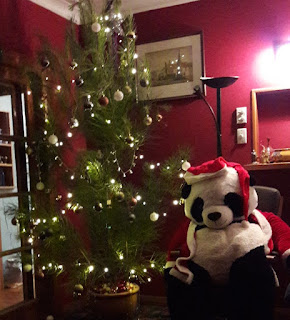 |
| Anthony Baker |
I
went to my Uncle Ant's funeral a few weeks ago. This meant a trip across the
ditch (the Australian and New Zealand term for crossing the Tasman Sea to each
other's country). I was unsure about going; I had visited my Sydney uncles
eighteen months earlier, when they’d bantered like Morecambe and Wise. People
close to me said I wouldn't regret it. They were right.
When
the coffin left the chapel, my throat closed and my tear ducts opened. The tears weren't
only for the person in the coffin, they were for all the people I have loved who
I’m no longer am able to touch – my father, Ant’s eldest brother, being one of
them.
When
Dad was dying I received the call that said, if you want to see Dad alive you
had better come now. Ant must have had the same call or email, because he
arrived in Dad's hospital room a few hours after me.
Ant
and his brother and sister had migrated to Australia in the sixties as ‘Ten
pound Poms.’ As Ant's career was in shipping, London was a business destination,
which meant we saw him more than our other Australian relatives. Ant would tell
us about shark-infested beaches protected by nets, Christmas Day on the beach,
and having so much sun you didn't want to go out in it. We were captivated. He
became known as Uncle Australia.
Perhaps
it was hearing his tales that made me open to living in another country. Like
others who leave their homelands, I had assumed that migration was a mostly
positive experience. Uncle Ant seemed happy. He was able to visit his parents
and us, and his mother and father often went to see him and his family.
When
Dad was dying, I had been living in New Zealand for ten years. I had three
children under five. I already had many
doubts about bringing my children up in an environment very different to the one
I was brought up in. Since Dad's diagnosis two years earlier, we had made two
trips to see him while he was well. Saying goodbye each time was a punch on my
heart.
I
assumed it was only me who was struggling with living with a heart in two
homes. I decided it was my habit of over-analysing, together with hormonal
panics and self-doubt, making me feel so torn between the place I live and love,
and the place I once lived and still love.
In
the hospital, Ant and I talked about the journey over. He winced when he
realised I’d left my young children behind. He listened when I told him how
torn I felt. Then he said, almost casually, ‘It doesn't get any better, you
just get more used to it.’
I
had an ally. Here was someone who knew the feeling of being away from family,
my sofa, my daily environment. My
father's brother knew what I was going through because he’d been through it
himself and was going through it now with his brother.
It
meant so much to me to have someone there who understood.
From
that time on I realised that many migrants struggle with having a heart in two
homes. I may have been irrational or over-sensitive, but even if I was, I now
knew that I was not alone.
Twenty-two
years later I was present for Ant's funeral. This time I didn't have to go
around the world, only 'across the ditch.' I travelled with my sister Jaine,
who has lived in New Zealand for the past eleven years. During the sun-filled day we met up with ten
of our cousins, their spouses and children, aunts, uncles and distant cousins.
To be amongst such familiar and familial faces, mannerisms, stories and senses
of humour was a joy. When my cousin Aiden scratched the right side of his neck
with a pointed index finger, just as my twenty-two-year-old travelling nephew
had when he’d stayed with us during the Christmas holidays, my sense of
belonging swelled. I don't think these
two had met; I don't remember my grandparents having this mannerism and so
perhaps it really was genes that dictated that hand gesture. Throughout the day
family stories came out in a variety of themes, depending how the storyteller remembered
them, or who had passed on the story to the storyteller. The new and retold
stories were received equally keenly. Did I regret going to the funeral ?
No way. I loved it. My belonging tank had been topped up.
Uncle
Ant was my ally who helped me see how living far away can be managed. His
funeral reminded me that our family may be scattered, but we are all part of a
warm and caring family network. We are allies. We may be disconnected
geographically but we are connected by history, by genes, and by caring and
family love.






